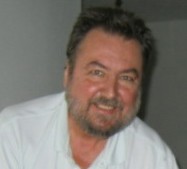So, your feet always hurt, and you have to take a minute to straighten your back every morning getting out of bed. You’re gettin’ old, pal, but not so fast. Quit crying and put down that beer.
If 50 is the new 30 and 70 the new 50, can we expect to live to 120? Ilchi Lee, a South Korean bestselling author and creator of mind-body training methods, believes we can.
“I’ve made a clear, unwavering decision that I will live to 120 years of age,” Lee writes in I’ve Decided to Live 120 Years: The Ancient Secret to Longevity, Vitality, and Life Transformation (Best Life Media).
The number of people 100 years old has quadrupled in the past 20 years, and Lee points out that number will continue to increase rapidly in the future. So why not jump on the bandwagon?
The keys to that achievement include staying physically active, continuing to find a purpose in life, connecting with nature, and unifying with the divine or universe to understand what’s going on inside of us. It’s a combination of physical, mental, and spiritual well-being.
You might be saying, well, yeah, but I don’t really have time for extra activity or finding a purpose in life at my age. Been there, done that. I can’t remember how many times I started jogging each day, only to slack off and eventually give up.
What’s attractive about Lee’s solutions is that physical activity doesn’t have to be painful. No need for jogging or working out in the gym. Instead, you can do one-minute exercises every hour, such as simple hand exercises while sitting down, doing a few push-ups against a sink, or something a little more strenuous like taking the stairs or doing jumping jacks. The idea is to make these simple tasks a normal part of your life every day.
Walking, of course, can play a major role. Aside from the health benefits, it provides time for meditation, prayer, and spiritual activity for mental stimulation that also allows focus on your life purpose. It connects the mind, body, and spirit for calmness and peacefulness. Lee also provides messages of wisdom and guidance.
People who’ve tried these techniques say it’s given them a whole new life with new goals, even after age 60 or 70. Improved mental, spiritual, and physical health brings them closer to family, friends, and the community for better involvement.
You’ve heard it before: it’s never too late, never give up. Wave your hands in the air, do some finger push-ups, get your mind in order. Then have that beer.



